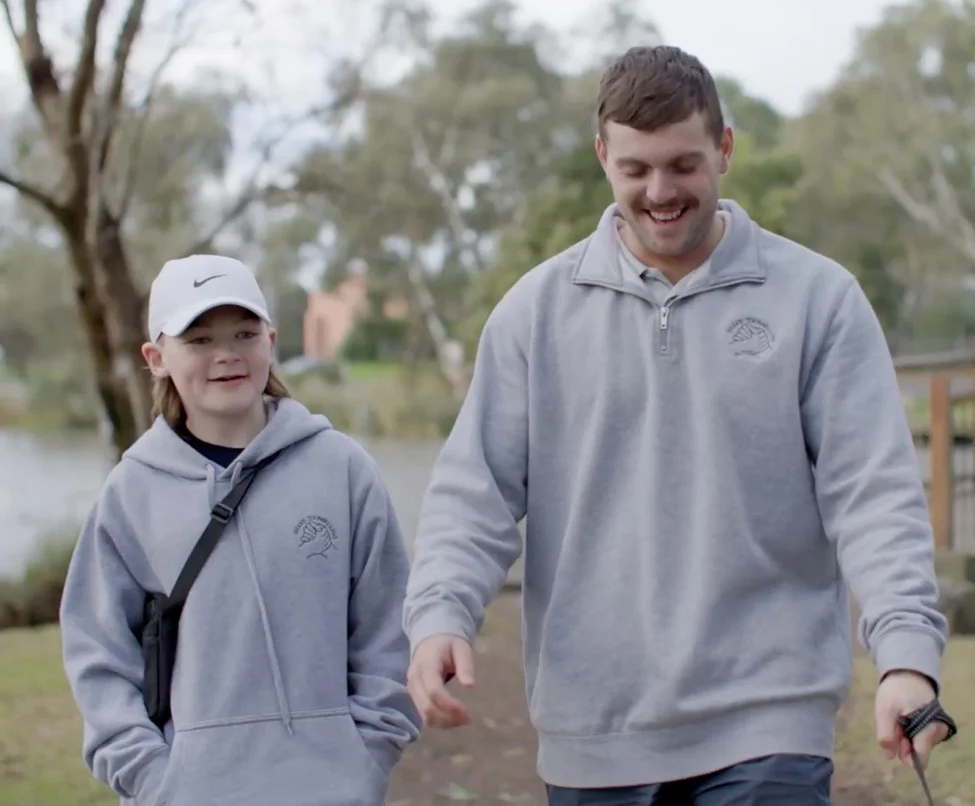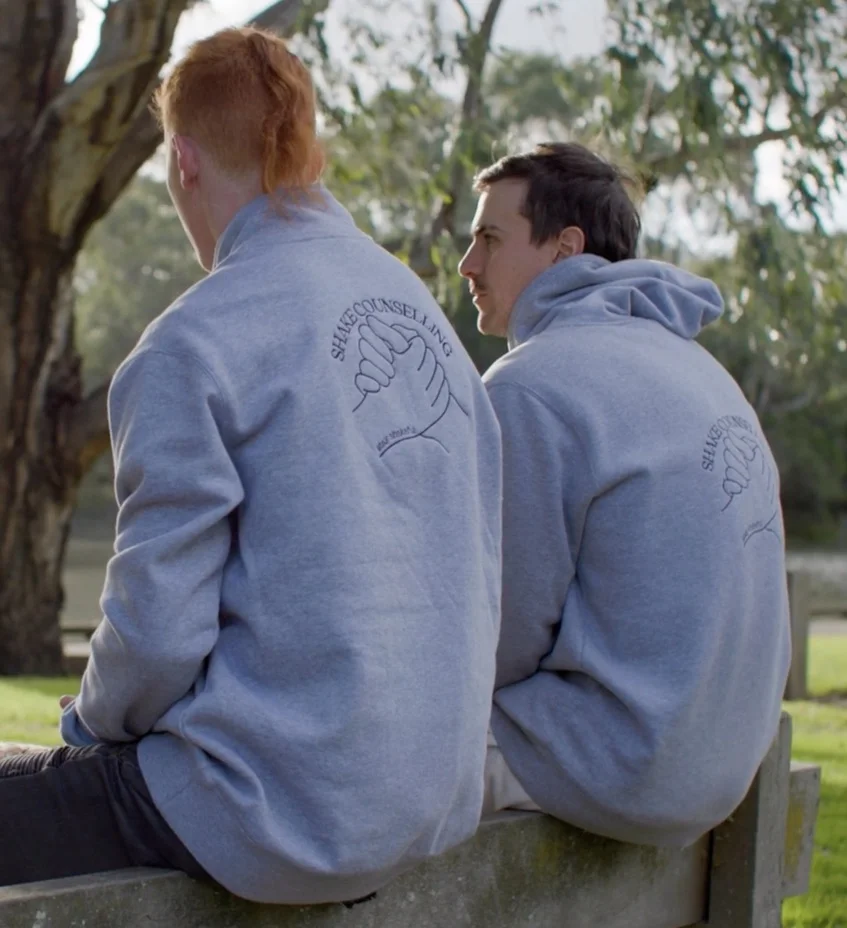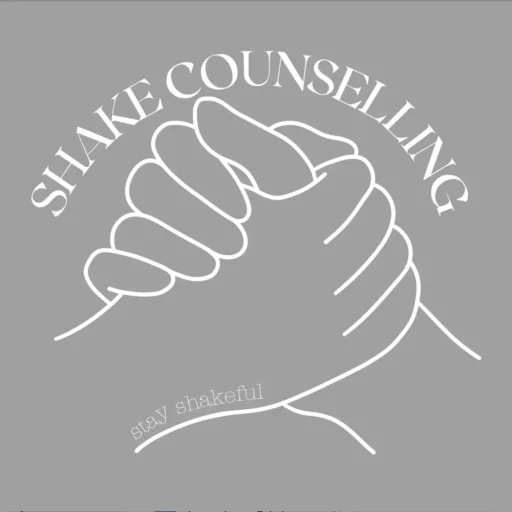Acceptance and Commitment Therapy
For Teens Who Need a Different Approach
Our specialised approach integrates physical movement with ACT to help Geelong teenagers manage anxiety, depression, and emotional challenges. Where traditional therapy fails, we connect.
When Traditional Therapy Doesn't Work
Struggling Teen
- Reluctant to open up in traditional therapy
- Feeling trapped in the counselling room
- Uncomfortable with direct eye contact
- Anxious about being judged
- School refusal or declining academics
Shake's ACT Approach
- Movement-based sessions (basketball, walks)
- Side-by-side conversations reduce pressure
- ACT tools presented through activities
- Value-aligned goal setting
- Psychological flexibility building
Thriving Teen
- Better emotional regulation
- Improved school attendance
- Healthier relationships
- Greater self-acceptance
- Clarity on personal values & goals
"Our movement-based approach creates a safe space where teens actually want to engage with therapy."
Book Your Free ConsultationWhat is Acceptance and Commitment Therapy?
Acceptance and Commitment Therapy (ACT) is a powerful, evidence-based approach that helps teenagers develop psychological flexibility—the ability to be present, open up to difficult experiences, and take action guided by personal values.
Unlike traditional cognitive approaches that focus on changing or challenging negative thoughts, ACT teaches teens to accept their internal experiences while still moving toward what matters most to them.
At Shake Counselling Geelong, we've transformed standard ACT into a dynamic, movement-based experience specifically designed for teens who struggle with sitting still in traditional therapy settings.

"After refusing other therapy, my son actually looks forward to his sessions at Shake. The basketball court was a game-changer—he opens up while playing."
The Six Core Processes of ACT
These fundamental processes work together to help teens develop psychological flexibility—the key ability to stay present, open up to difficult experiences, and take action based on what truly matters.
Acceptance
Making room for difficult emotions, sensations, and thoughts without trying to change them or push them away.
How We Apply It:
During basketball, we might ask: "Can you notice your nervousness about missing the shot and still take it anyway?"
Cognitive Defusion
Learning to observe thoughts without getting caught up in them or believing they are literally true.
How We Apply It:
While walking, teens learn to see thoughts as "just words," like clouds passing in the sky rather than absolute reality.
Present Moment Awareness
Developing mindfulness to fully engage in the here-and-now experience with openness and receptiveness.
How We Apply It:
Physical exercises help teens ground themselves and notice what they're feeling in their bodies right now.
Self-as-Context
Developing a sense of self that's separate from thoughts and feelings—the "observer" of experiences.
How We Apply It:
Through movement, teens learn they can observe their thoughts and feelings without being defined by them.
Values
Clarifying what truly matters and what kind of person the teen wants to be in different areas of life.
How We Apply It:
Through activities and games, we help teens discover what's truly important to them beyond peer pressure.
Committed Action
Setting goals aligned with personal values and taking effective steps toward them, even when difficult.
How We Apply It:
We help teens set achievable goals (like attending school one more day per week) aligned with their values.
Movement-Based ACT: Breaking the Therapy Stereotypes
We've revolutionized therapy for teens who struggle with traditional approaches. Our movement-based sessions incorporate physical activity with ACT principles to create a breakthrough environment where teens feel comfortable opening up.

Basketball Sessions
Our indoor court creates a relaxed environment where teens can engage in therapy while shooting hoops—reducing the pressure of direct conversation.
Walking Therapy
Side-by-side walks allow for natural conversation without the intensity of eye contact, helping teens who feel uncomfortable in traditional settings.
Gym-Based Sessions
Using physical movement as a metaphor for overcoming challenges helps teens internalize ACT principles through direct experience.
Gaming Analogies
We connect with teens through their interests, using gaming scenarios to explain ACT concepts in language that resonates with them.
"After refusing to attend three different psychologists, my son actually asks when he can go back to Shake. The basketball court completely changed how he sees therapy. He's going back to school now after 6 months of refusal."— Mother of 14-year-old client, Geelong
ACT Therapy Can Help Your Teen With:
Anxiety & Stress
Learn to make space for anxious feelings while still taking steps toward valued activities, breaking the avoidance cycle.
Signs Your Teen Might Be Struggling:
- Avoiding social situations or activities
- Physical complaints (headaches, stomachaches)
- Excessive worry about the future
- Difficulty sleeping or concentrating
Depression & Low Self-Worth
Develop self-compassion and connect with meaningful pursuits even amidst difficult emotions.
Signs Your Teen Might Be Struggling:
- Loss of interest in previously enjoyed activities
- Withdrawal from friends and family
- Negative self-talk or excessive self-criticism
- Changes in sleep or appetite
Anger & Emotion Regulation
Build skills to respond flexibly to intense emotions rather than reacting impulsively in the moment.
Signs Your Teen Might Be Struggling:
- Explosive outbursts over minor incidents
- Physical aggression or property destruction
- Difficulty calming down once upset
- Conflict with authority figures
School Refusal
Address underlying fears while taking gradual steps toward school reintegration aligned with personal values.
Signs Your Teen Might Be Struggling:
- Resistance or refusal to attend school
- Physical symptoms on school mornings
- Falling behind academically
- Social isolation from peers
 NDIS Provider
NDIS Provider
NDIS Support Available
Shake Counselling is an approved NDIS provider offering ACT therapy for eligible participants. We support self-managed or plan-managed NDIS participants with tailored approaches to improve mental health and develop life skills.
Learn About NDIS OptionsA Teen's Journey with Movement-Based ACT
Jake's Story: From School Refusal to Re-engagement
Details have been changed to protect privacy
The Challenge
Jake, 15, was referred to us after missing 3 months of school due to severe social anxiety and a previous negative experience with therapy. He refused to engage with three different psychologists and was increasingly isolated at home.
Our Approach
We began with basketball-based sessions, allowing Jake to engage in physical activity while we had side-by-side conversations. This removed the pressure of direct eye contact and sitting still. Through movement, we introduced ACT concepts like acceptance of anxiety and values clarification.
The Breakthrough
By learning to observe anxious thoughts without being defined by them, Jake began to make small but significant steps. We focused on what truly mattered to him—his education and future career—and developed realistic goals aligned with these values.
The Results
After 6 sessions, Jake returned to school part-time (2 days/week). Within 3 months, he had increased to full-time attendance. His parents reported significantly improved mood and willingness to engage socially. Most importantly, Jake developed psychological flexibility that continues to help him face challenges with resilience.
Begin Your Teen's ACT Journey Today
Taking the first step toward helping your teen can feel overwhelming, especially when previous therapy attempts haven't worked. That's why we offer a free 20-minute phone consultation to discuss your situation and understand your teen's specific challenges.
During this call, we'll explain how our movement-based ACT approach might help, answer any questions you have about our methods, and create a preliminary plan tailored to your teen's needs.
Our goal is to make this initial process as comfortable and informative as possible, giving both you and your teen confidence in moving forward with the right support.
Request More Information
Complete this form and we'll contact you within 24 hours to discuss how we can help your teen.
Frequently Asked Questions
While ACT incorporates some CBT techniques, it places a greater emphasis on accepting uncomfortable thoughts and feelings, rather than challenging or changing them. ACT also focuses heavily on identifying values and taking committed action aligned with those values.
Instead of trying to eliminate difficult thoughts or emotions, ACT helps teens develop a new relationship with them while still moving towards what matters most in their lives. This approach is particularly effective for teens who find traditional "thought challenging" approaches too confrontational or ineffective.
Many teenagers—especially teen boys—find traditional sit-down therapy uncomfortable and unengaging. By integrating physical activity with therapeutic conversations, we create several advantages:
- Reduced pressure from direct eye contact and formal settings
- Natural dopamine release from movement improves engagement and mood
- Side-by-side conversations feel more natural and less threatening
- Physical metaphors make abstract concepts more concrete and memorable
- Activity creates natural pauses for reflection without awkward silences
This approach is particularly effective for teens who have previously rejected or disengaged from traditional therapy approaches.
The length of treatment varies depending on individual needs and goals. Some teens show significant improvement in 8-12 sessions, while others benefit from longer-term support of 20+ sessions, particularly for complex or long-standing issues.
At Shake Counselling, we typically recommend:
- Initial assessment: 1-2 sessions
- Core ACT skills development: 6-8 weekly sessions
- Practice and application: 4-6 sessions (often spaced further apart)
- Maintenance/check-in sessions: As needed
We'll regularly review progress together and adjust our approach as needed to ensure the best possible outcomes for your teen.
Yes, family involvement can significantly enhance outcomes. While respecting teen privacy and autonomy, we offer several ways for parents to participate:
- Parent check-ins: Brief updates (with teen permission) about progress and how you can support at home
- Parent education sessions: Learn ACT principles and techniques to reinforce at home
- Family sessions: Optional joint sessions to practice new communication patterns
- Parent resources: Handouts, recommended readings, and videos about ACT concepts
We tailor parent involvement based on each teen's preferences and therapeutic needs, recognizing that teens often need both privacy and family support.
Teen reluctance to therapy is extremely common, especially for those who've had negative experiences with traditional approaches. Here's how we address this:
- No-pressure initial meeting: Frame it as a one-time meeting to see if they connect with our approach—no commitment
- Activity focus: We emphasize the basketball court, walking sessions, or other activities rather than "therapy"
- Parent consultation: We can start with parent-only sessions to develop strategies for encouraging teen participation
- Meet where comfortable: For extremely reluctant teens, we can sometimes meet at a neutral location initially
Many of our most successful clients initially refused to try therapy. Our movement-based approach often breaks through resistance when traditional methods have failed.
Have more questions? We're happy to help.
Call Us: 0422 868 258